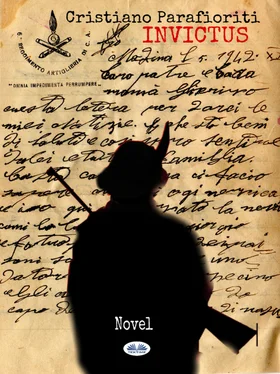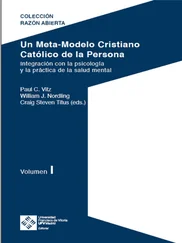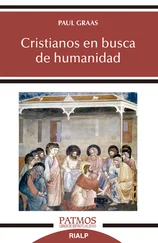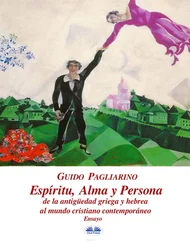Invictus
Cristiano Parafioriti © 2021
Cover photo
Anna Francica
Layout and editing
Stefania Salerno
CRISTIANO PARAFIORITI
INVICTUS
NOVEL
With an introductory essay by Antonio Baglio
Translated by Giovanna Bongiovanni
TABLE OF CONTENT
AUTHOR’S NOTE
INTRODUCTORY ESSAY
PART I
I
II
III
IV
V
VI
VII
VIII
IX
PART II
I
II
III
IV
V
VI
VII
VIII
IX
X
XI
XII
XIII
XIV
XV
XVI
XVII
XVIII
PART III
I
II
III
IV
V
VI
VII
VIII
NEMESIS
ACKNOWLEDGMENTS
Out of the night that covers me,
Black as the pit from pole to pole,
I thank whatever gods may be
For my unconquerable soul.
In the fell clutch of circumstance
I have not winced nor cried aloud.
Under the bludgeonings of chance
My head is bloody, but unbowed.
Beyond this place of wrath and tears
Looms but the Horror of the shade,
And yet the menace of the years
Finds and shall find me unafraid.
It matters not how strait the gate,
How charged with punishments the scroll,
I am the master of my fate,
I am the captain of my soul.
(Invictus, William Ernest Henley)
To Don Ture Di Nardo “Pileri”
to my grandfather Calogero Barone “Ccanino”
to all veterans
and to those who have never returned
Nino Amadore, my friend and esteemed journalist of “Il Sole 24 Ore”, wrote in one of his articles: “Cristiano Parafioriti is the founder of a new literary genre, Sicilian minimalism, where the stories of a country and its people become the stories of the whole world”.
I jealously guard this definition in my memory and heart, and the more stories I write, the more I find myself in those words.
My work is born in my small and beloved village, Galati Mamertino, a mountain village perched on the Nebrodi mountains in Sicily. Galati is a melting pot of many other tiny places and many other realities that shine with their own light, each with stories to tell, with their people, with their own myths.
This novel was born from one of these magical corners, San Giorgio, a remote and by now an uninhabited village, of which today only a few abandoned ruins remain.
I believe that some stories come looking for you. Writers often live in a state of almost lethargy, and, suddenly, something awakens them from this sweet wandering. And so it happened that on a hot day in August 2019, Salvatore Di Nardo, the homonymous nephew of the main character of this story, woke me from my peaceful rest.
Salvatore, known as Salvo, has been living in Pisa with his family for years. He, too, is affected by the sicilitudine , a disease that makes us exiled children torn from our roots but always tightly linked to our native land.
I've known him since my days in the marching band when we both lived in the village. We had a good time between concerts, laughter, drinking and lots of friends. It was a lifetime ago.
For an unknown reason, I have always had a good feeling towards him, as if only beautiful things orbited around him. It is an irrational belief that comes out of my unconscious thoughts, so illogical that I feel it crystal clear! I am in this way. I follow instinct and live with passions.
Salvo told me that he wanted to publish on Facebook, through the successful Tuttogalatimamertino page, some videos about his grandfather, the homonymous Salvatore di Nardo (born in 1921), an Alpine in Russia with the Armir during the Second World War.
Nino Serio, the page administrator, raised some concerns as the material was complex and lasted more than three hours! It was a long interview with his grandfather about that tragic adventure, full of documentaries.
I could not stand that this story could end like this! It was the sparkle of that boy that did not give me peace. I suddenly felt within me a big craving to see that material, to know that story that had stayed buried for almost seventy years.
Those videos were like sparks that light a fire. The creative clapper set in motion, making my soul buzz. In me, the uncontrollable urge that I had already felt in my life and that I knew very well: to write.
I called Salvo Di Nardo.
“I’ll write a novel about it!” I told him point-blank.
He, touched, replied, “In my heart, that was what I wanted!”
This novel is, therefore, based on a true story. Nevertheless, some characters, organizations, and circumstances may be the fruit of the author's imagination or, if they exist, used for narrative purposes.
Almost.
THE ITALIAN CAMPAIGN OF RUSSIA
OF 1941-1943
AND ITS MEMORY
I’ve still in my nose the smell of grease on a red-hot machine-gun. I’ve still in my ears and even in my brain the crunching of snow under my boots, the coughs and sneezes from Russian lookouts, the sound of dry grass swept by the wind on the banks of the Don. I’ve still in my eyes the stars of Cassiopeia which hung above my head every night, and the bunker props above my head every day. And when I think about it all I feel the terror of that January morning when their gun Katiuscia first let off its seventy-two rocket-shells. 1
This is the incipit of a famous autobiographical novel, The Sergeant in the snow , written by the Alpine Mario Rigoni Stern, soon destined to become the best-known literary testimony of the disastrous Italian campaign in Russia during the Second World War.
When, in June 1941, Hitler decided to wage war against the Soviet Union, triggering Operation Barbarossa, Mussolini responded by offering his willingness to support the German troops. The establishment of a Corps of Italian expedition to Russia (CSIR) left in mid-July for the eastern front under the orders of General Giovanni Messe.
The following year, combined with new corps in the Armir (Italian Army in Russia), it was deployed on the Don and couldn't resist the Soviet offensive that, between December 1942 and January 1943, would have decimated it. Numbers show the extent of the disaster.
Out of 230,000 Italians who left for the eastern front, one-third of these – about 95,000 – had lost their lives: dying in combat, dying of hardship and cold, during the retreat or the stages of transfer to the prison camps, sadly known as Davaj marches (from the term used to solicit the passage by the Russian escort soldiers). Without forgetting how many perished during the same imprisonment and the high number of those missing.
An event so fatal and fraught with consequences for thousands of Italian soldiers – swallowed up by the Russian steppe, plagued by tough Soviet resistance, as well as by adverse climatic conditions – and for their families, often destined to remain unaware of the fate of their relatives, ended up feeding a copious memoir, stimulated by the desire to account for a unique and devastating experience.
It is no coincidence that the Russian campaign – as the historian Maria Teresa Giusti, author of a valuable volume on the subject, pointed out – ended up as “one of the twentieth-century war events with the biggest impact on Italian collective memory” 2.
A memory that is certainly uncomfortable, on the one hand, if we consider the fact that the war campaign was still an expression of the aggressive policy of Mussolini, but so disruptive due to the suffering and dramatic conditions of the retreat as to reveal the profound disillusionment with the regime. The bitter acknowledgment of the lack of training marked the participation of the Italian soldiers in the enterprise, which was opposed by the undoubted acts of heroism of those who were lucky enough to survive that terrible experience and return home. In this regard, it is interesting to re-read the authoritative testimony of another veteran, Nuto Revelli, among the first to denounce the dramatic conditions of the soldiers on the Russian front in his memorial writings:
Читать дальше












